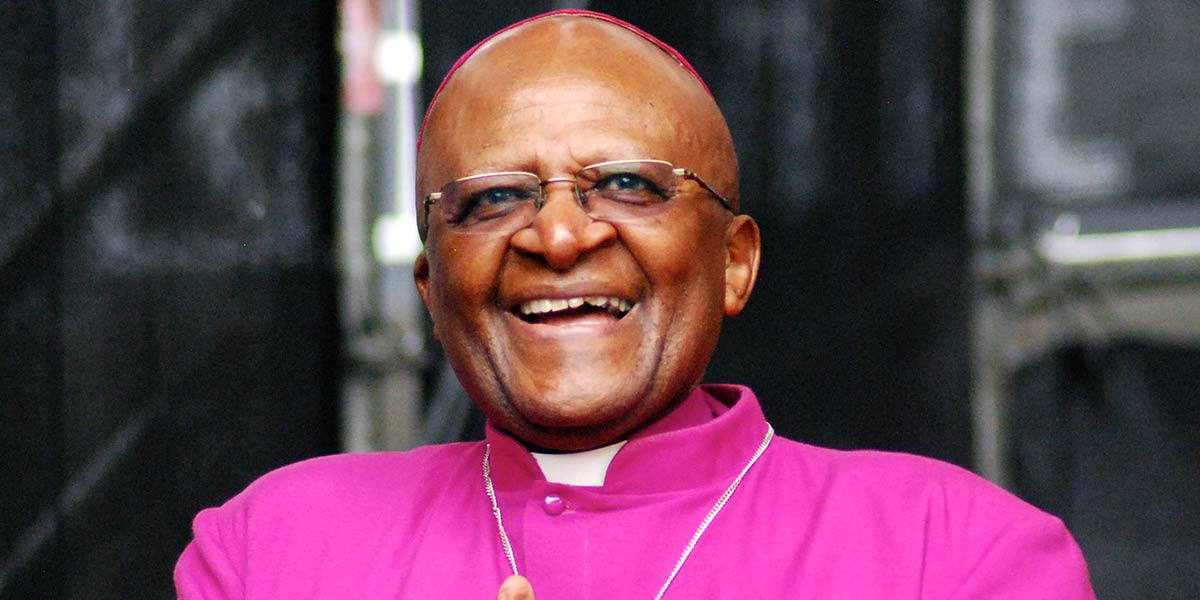We’ll never forget: Why Desmond Tutu was an iconic LGBTIQ+ ally

Archbishop Emeritus Desmond Tutu will be remembered as a champion for LGBTIQ+ inclusion (Photo: Kristen Opalinski)
The world’s LGBTIQ+ community is in mourning for South African human rights giant and queer ally Archbishop Emeritus Desmond Tutu who has died at the age of 90.
The Desmond and Leah Tutu Legacy Foundation confirmed that Tutu passed away on the morning of 26 December in Cape Town.
“Tutu was a living embodiment of faith in action, speaking boldly against racism, injustice, corruption, and oppression, not just in apartheid South Africa but wherever in the world he saw wrongdoing, especially when it impacted the most vulnerable and voiceless in society,” said the foundation.
The former Anglican Archbishop of Cape Town became a global figure as a fearless voice against the apartheid regime. In 1984, he was honoured with the Nobel Peace Prize “for his role as a unifying leader figure in the non-violent campaign to resolve the problem of apartheid in South Africa.”
After the transition to a democratic South Africa, and even in his retirement, Tutu continued to speak truth to power, condemning injustices committed by the government of the day. His Desmond Tutu Health Foundation also became a major player in the fight against the scourge of HIV.
But for many LGBTIQ+ people around the world, it was his unambiguous stance against homophobia in all spheres of life, especially in the religious realm, that made him a revered figure. He was one of the few senior religious leaders to vocally and consistently condemn queer prejudice as immoral and ungodly; as repugnant as racism and other forms of bigotry.
As far back as 1994, Tutu asserted that “If the church, after the victory over apartheid, is looking for a worthy moral crusade, then this is it: the fight against homophobia and heterosexism. I pray we will engage in it with the same dedication and fervour which we showed against the injustice of racism…”
In 2007, he famously told BBC radio: “If God, as they say, is homophobic, I wouldn’t worship that God.” Three years later, Tutu made a powerful appeal for LGBTIQ+ equality in Africa in an op-ed piece published in The Washington Post. He said that “Gay, lesbian, bisexual and transgendered people are part of so many families. They are part of the human family. They are part of God’s family. And, of course, they are part of the African family.”
Addressing LGBTIQ+ bigotry in 2012, he said that the persecution of queer people “is reminiscent of what we experienced under apartheid and what the Jews experienced at the hands of the Nazis.” Tutu insisted that God gave him no choice but to speak out against injustices.
A defiant statement in 2013 again infuriated homophobes and religious bigots around the world. The cleric reiterated that “I would refuse to go to a homophobic heaven. No, I would say sorry, I mean I would much rather go to the other place. I would not worship a God who is homophobic and that is how deeply I feel about this.”
He was slammed by Nigerian Anglican Bishop Emmanuel Chukwuma as “spiritually dead” and condemned to hell by Cape Town’s most infamous Christian hate pastor, Oscar Bougardt.
Significantly, Tutu was not among those religious leaders who simply tolerate LGBTIQ+ people or view them as damaged individuals. He believed that our sexual identity should be celebrated and affirmed, stating that “…sexual orientation is not something that you choose, it’s a gift.”
The former archbishop had a personal experience with church homophobia after his daughter, the Rev. Mpho A. Tutu, married her same-sex partner, Professor Marceline van Furth, in 2016. Soon after, she was forced to resign as an Anglican minister by the church because of her marriage.
With the death of Desmond Tutu, we have lost an enduring and authentic moral compass; an African son who inspired and led with seemingly endless reservoirs of humility, wisdom and compassion. In an era filled with cynicism, intolerance and hypocrisy, he will be deeply missed. The light in the world seems that much dimmer today.
MambaOnline offers its sincere condolences to Tutu’s wife Leah and their family.
Leave a Reply